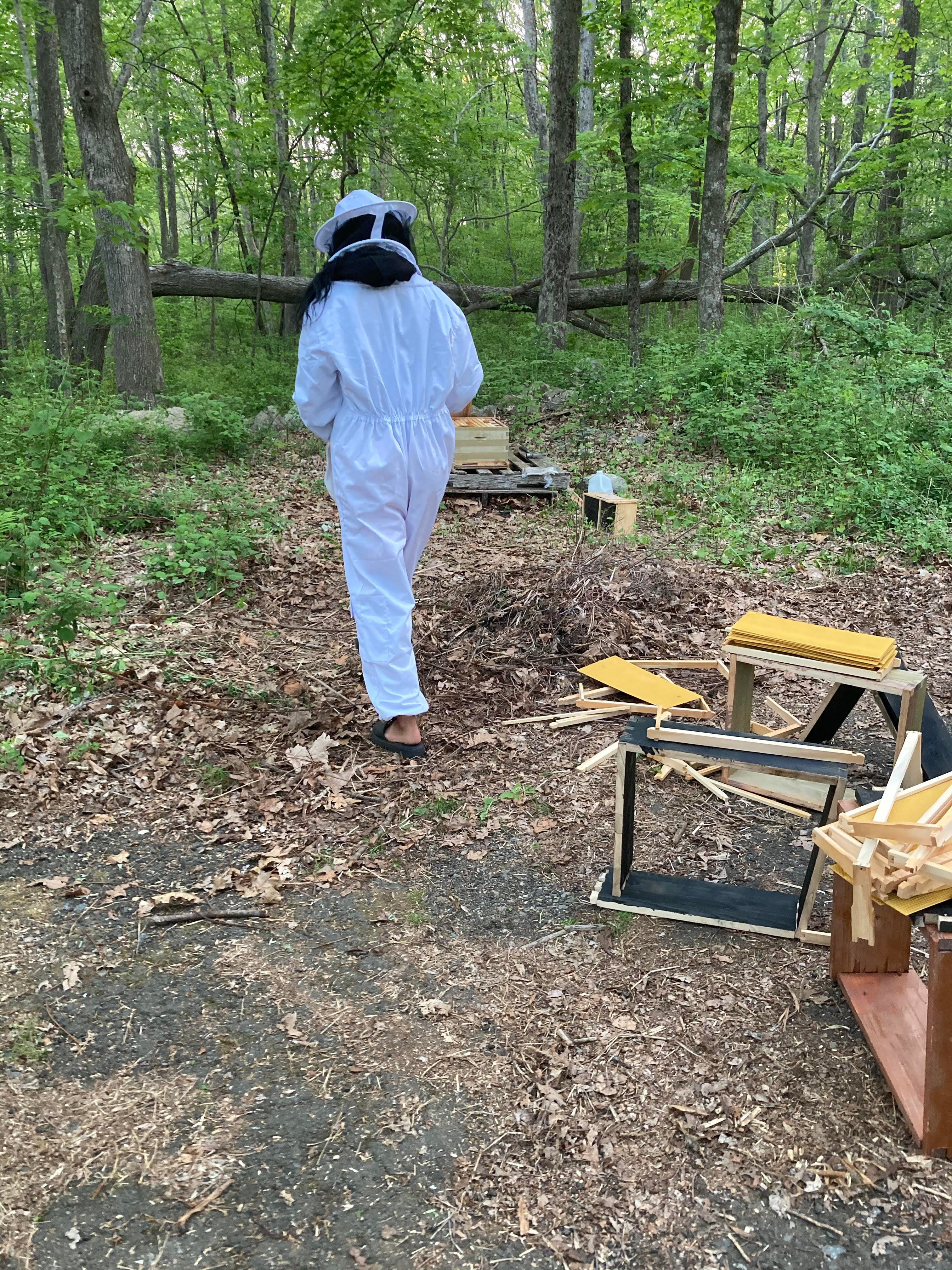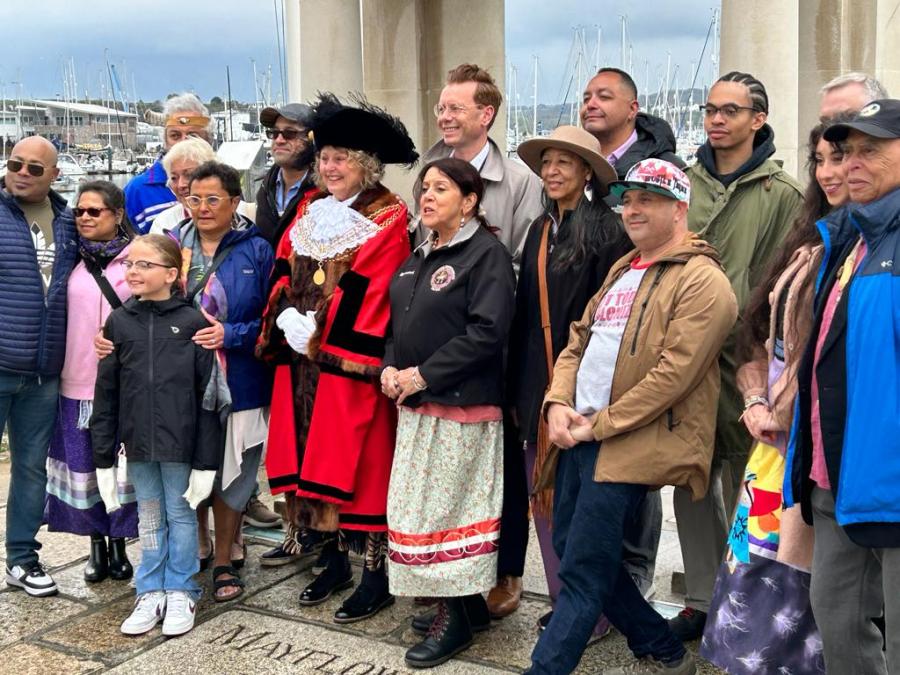
Native Americans in the east, also known as Eastern Woodland Peoples, as many other Tribal Nations throughout Turtle Island, understand that the new year begins with the Spring Equinox. Spring represents new cycles, new life, new beginnings, as well as closings. In spring, nature thrives, and so do bees; hatching, collecting pollen, and thriving off of their hard work.
European settlers are the reason honey bees exist in the United States. Records show that in May of 1632, about 150 years before statehood, in what is now the city of Providence, European settlers in Rhode Island made a request for honey bees to be sent from England. It is said that Native people of the land knew that the white man was nearby through the sight of honey bees.
Rhode Island is home to the Nahihaganseck (Narragansett) Peoples, which translates to “People of the Small Point.” The Narragansett People established our existence in the Rhode Island region over 30,000 years before the arrival of the Europeans. My ancestors were agriculturalists and hunters who were organized under powerful “kings,” and are considered warriors in this region. My Tribe, which continues to reside in this area, remained in power until the first European settlement around 1635. In 1636, Roger Williams acquired land rights from Narragansett Sachems. I am proud to be a link to the survivors of genocide that happened here as a result of English colonialism and settlement.
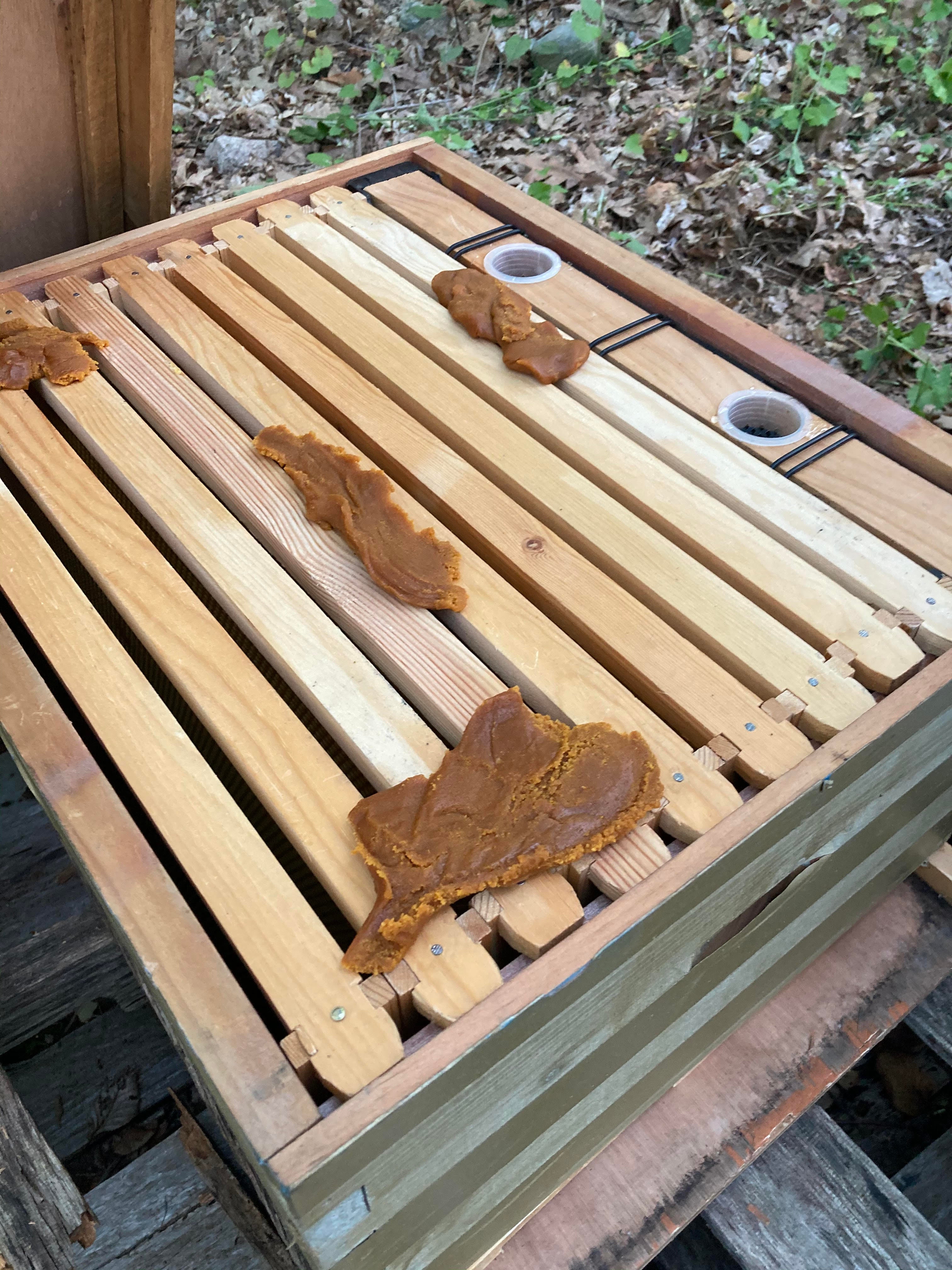
Like the rest of the colonized world, Tribal Nations are forced to share their lands with today's settler descendants. In the power of my ancestors, I took up beekeeping—with its oppressing history and all—and turned it into a lucrative and transformative activity. Today, I am introducing a new perspective on beekeeping and how bees can help pollinate the land, helping to heal the land and our people in the process.
My beekeeping journey began in December 2021 with the Rhode Island Beekeepers Association with a six-week course on the basics of beekeeping, where I gained many resources, much guidance, and a new passion. After completing the course, I pre-ordered three pounds of bees and a queen bee. On May 14, 2021, I made a new home for my first bee colony.
Through the help of books, the internet, and YouTube, I taught myself additional tips and techniques in beekeeping. State beekeeping policies vary, but in most states it is completely free and encouraged with little to no regulation. It is important to register your bee colony with your state to avoid complications during harvest season. An inspector will follow up to make sure the bee colony is up to code and disease-free with healthy living conditions.
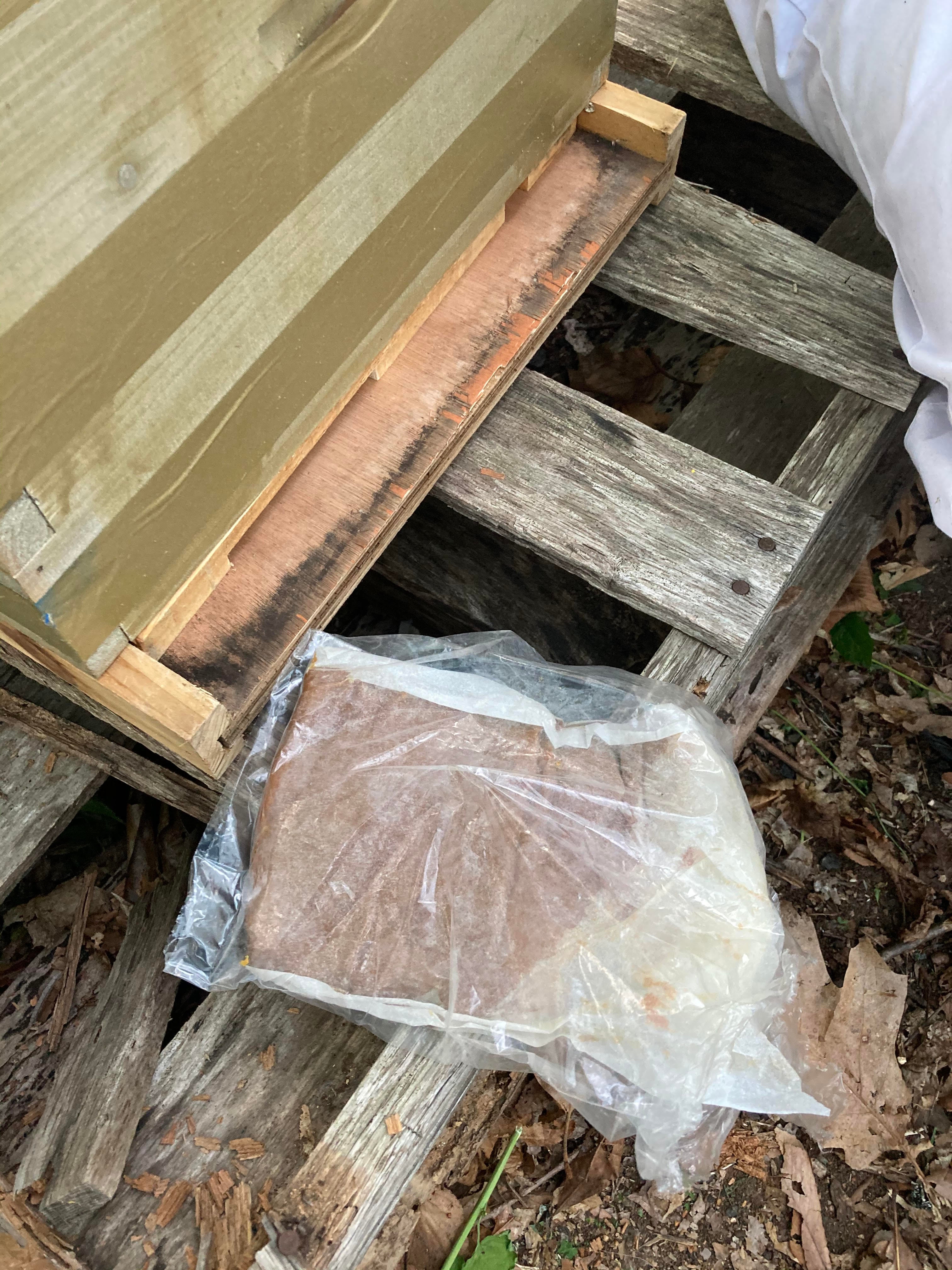
There are upfront costs in the beekeeping journey. Beginning investments range from $150-$200 for a package of bees with a queen. A beehive, which consists of a brood box (the space in the beehive where the queen lays her eggs), and a super, which sits on top of the hive and is where the bees work and make honey, ranges from $50-$150―unless you're crafty and can build your own. Protective bee suits with gloves cost around $40-50. You will also need a bee smoker, which averages around $20, a bee hive tool, which is used to extract the honeycomb, and a bee feeder to fill with a sugar water mixture to give your bees a head start. A full bee kit that includes the bee suit and tools can be purchased for around $80 online.
Beekeeping is an inspiring experience. Bees work incredibly hard to produce honey and to protect their queen and colony. It takes a bee its whole life to produce one tablespoon of honey, while one colony can produce about 80 pounds of honey at the end of harvest season.
Bees emanate frequencies from 10-1,000 Hz, depending on whether the hive has a queen and how calm the bees are; different species produce different sound frequencies. The frequencies resonate with organic human tissue and are thought to promote healing. They have also been found to have a calming effect on the brain. Studies have shown beekeepers tend to live longer, possibly because of that.
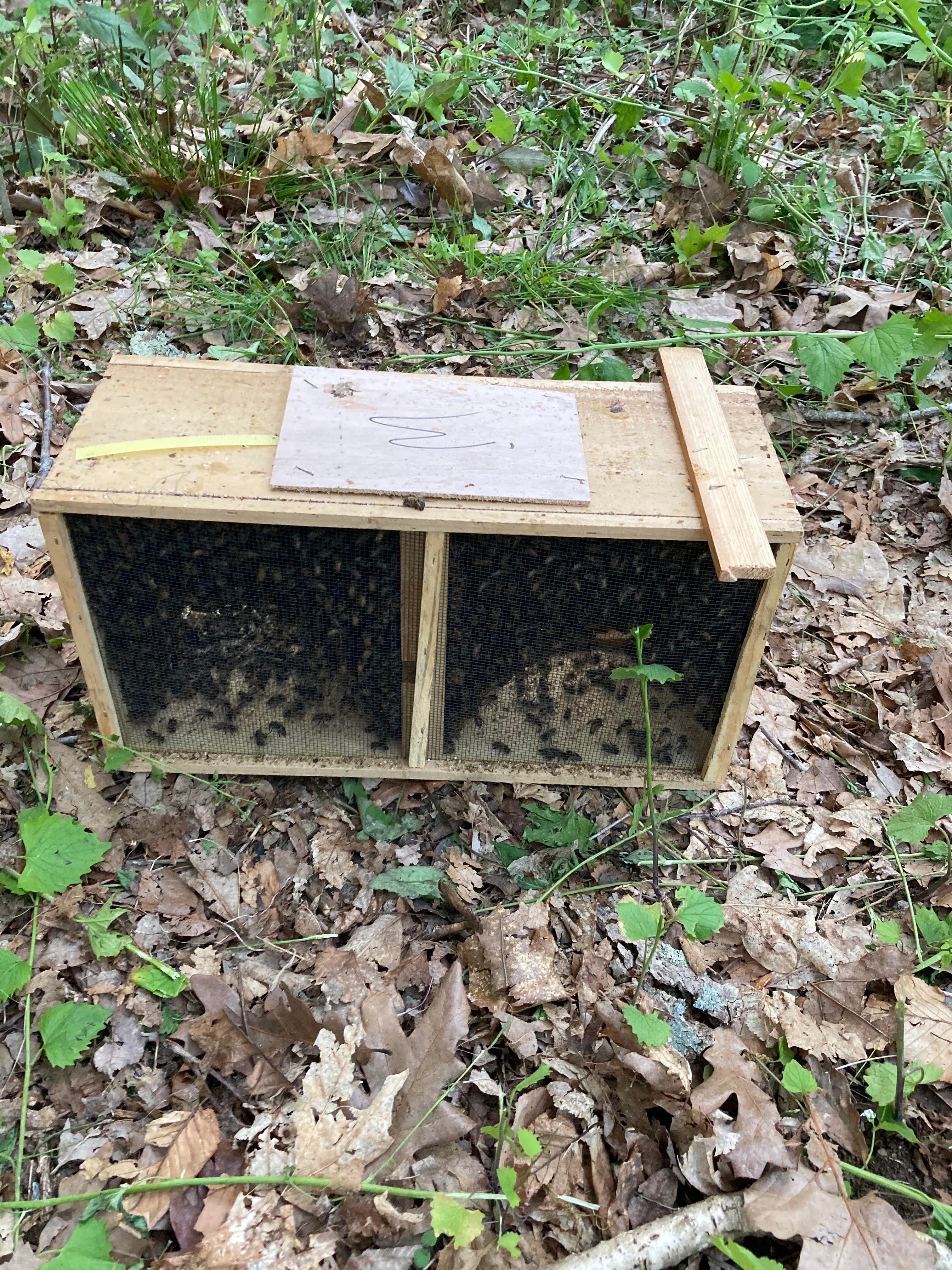
Bees are essential to farmers and can be used to help pollinate farm land. Bee pollen is also used as a natural allergy remedy, and propolis, which is a related byproduct, has antifungal properties along with many additional uses in traditional medicine. Bees are fundamental to the food chain and have many other benefits to the environment besides the honey they produce—which, it is important to note, is a non-perishable food source. Their ability to pick up pollen and spread it is essential to the reproduction of plants and food crops.
The beekeeping experience is a beautiful one that can even be passed down generationally; as long as you maintain your bee colony, they can last for lifetimes. We can learn a lot from bees, as they are in tune with the natural rhythm of life and work together in unity for a common goal. When I imagine what my ancestors might think of me tending to bees, I believe they are proud that I am doing my part in taking care of Mother Earth. I was taught that Mother Earth is a gift and that we must take care of her and respect her, just as she shares her resources with us. Like we say here in the East in our native tongue, Algonquin, “Kutapatush!” (thank you).
